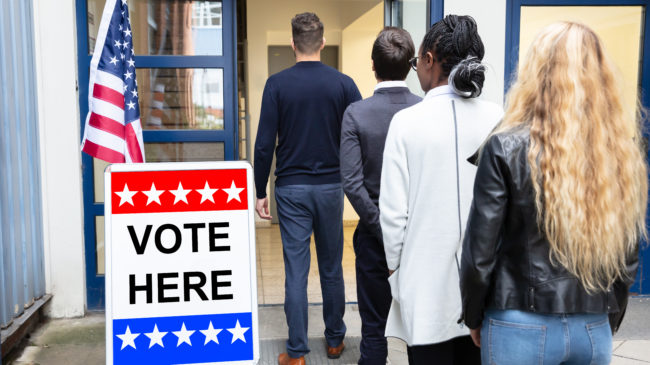California Proposition 18: Primary Voting for 17-Year-Olds Amendment
Summary
Under current California law, you must be 18 to vote. Proposition 18 (2020) would allow resident citizens who are not yet 18 at the time of a primary (usually June) but will be 18 when the general election occurs (in November) to vote in the primary, or any special election that occurs in the run-up to that general election, while still 17-years-old.
Fiscal Impact
This ballot measure would likely require expenditures between several hundreds of thousands of dollars and $1 million every two years by counties to send and process voting materials to eligible registered 17-year-olds. In addition, there would be one-time costs to the state in the hundreds of thousands of dollars to update existing voter registration systems.
Proponents’ Argument For
There is no formal campaign in favor of Prop. 18. Statements in favor of it emphasize that voting in a general election without having been able to choose the candidate of your party doesn’t engage new young voters in the democratic process as it should. Many races are basically decided in the primary because a particular race or district may not be competitive, so young people’s votes are devalued if they cannot also participate in the primary election. Eighteen other states and the District of Columbia have the same rules for voting that Prop. 18 would create for California.
Opponents’ Argument Against
There is no formal campaign against Prop. 18. Critics of it have claimed that 17-year-olds are still children and are likely to be ill-informed about issues and not fully able to engage with tough election choices.
Discussion
It is the case that 18 other states allow 17-year-olds to vote in primaries if they will 18 for the subsequent general election. California legislators have frequently debated this change, but because they have been unable to agree, they decided to put it to California voters.
Some research has shown that voting is habit-forming and so engaging new voters fully in an election year might improve civic engagement and might increase youth turnout for voting. Opponents could argue that the 18th birthday is a crucial boundary—before, you can’t be trusted to vote, after you can be.
The US has arbitrary age gateways when people are deemed adult enough to do a certain activity—drive, vote, drink alcohol, join the military, etc. That does not mean people under 18 are incapable of making good voting decisions, nor that people over 18 are. The voting age rule exists because most people agree there needs to be some age cutoff to define adulthood for purposes of voting eligibility, so modifying it should be seen as a cultural choice, not a scientific one.

